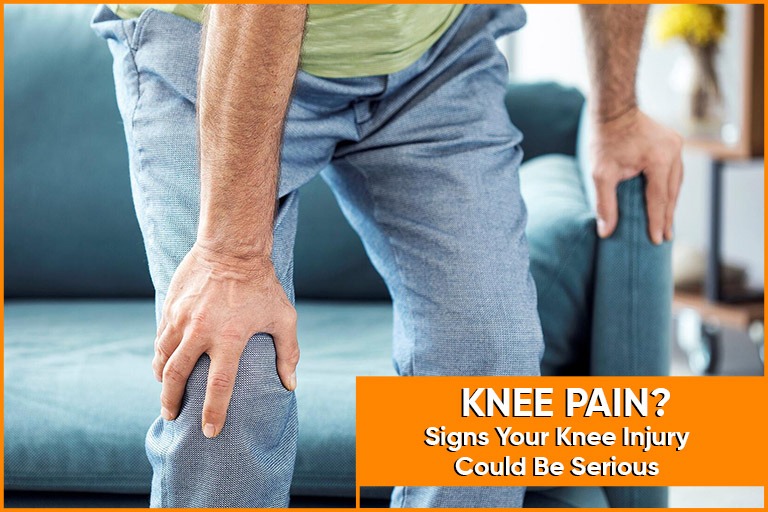Knee pain is a common complaint among people of all ages, but it’s important to know when the pain could be indicative of a more serious issue. While some knee injuries are minor, others can be quite serious and require medical attention. Here are a few signs that your knee injury could be more serious than you initially thought.
- Your Knee Is Swollen or Hot: If you notice that your knee is swollen or hot to the touch, it could be an indication of a more serious injury like a tear in the ligament or tendon. Swelling and heat are often signs of inflammation, which can happen if there is a tear or sprain in the knee.
- You Have Limited Mobility: If you’re having difficulty moving your knee or it’s extremely painful to do so, this could be an indication of a more serious injury. It’s important to get your knee evaluated by a doctor if you’re having difficulty bending or straightening it.
- You Hear Popping or Grinding Sounds: If you hear popping, grinding, or snapping sounds when you move your knee, this could be an indication that something isn’t quite right. For instance, if you hear a popping sound when you bend or straighten your knee, this could mean that the ligaments have been damaged or torn.
- You Feel Weakness in the Knee: If you feel like your knee is weak or unstable when you stand on it, this could be a sign of a serious injury. This could be caused by a tear in the ligament or tendon, or even a fractured bone.
- You Feel Numbness or Tingling in the Knee: If you feel numbness or tingling in your knee area, this could mean that something more serious is going on. This could be caused by a nerve being pinched or damaged due to an injury or structural issue in the knee.
If you’re experiencing any of these symptoms, it’s important to get your knee evaluated by a doctor as soon as possible. While some of these issues can be minor and can be treated with rest and over-the-counter pain medications, others may require surgery or more extensive treatment. Don’t wait until the issue becomes too serious – get it checked out as soon as possible!
